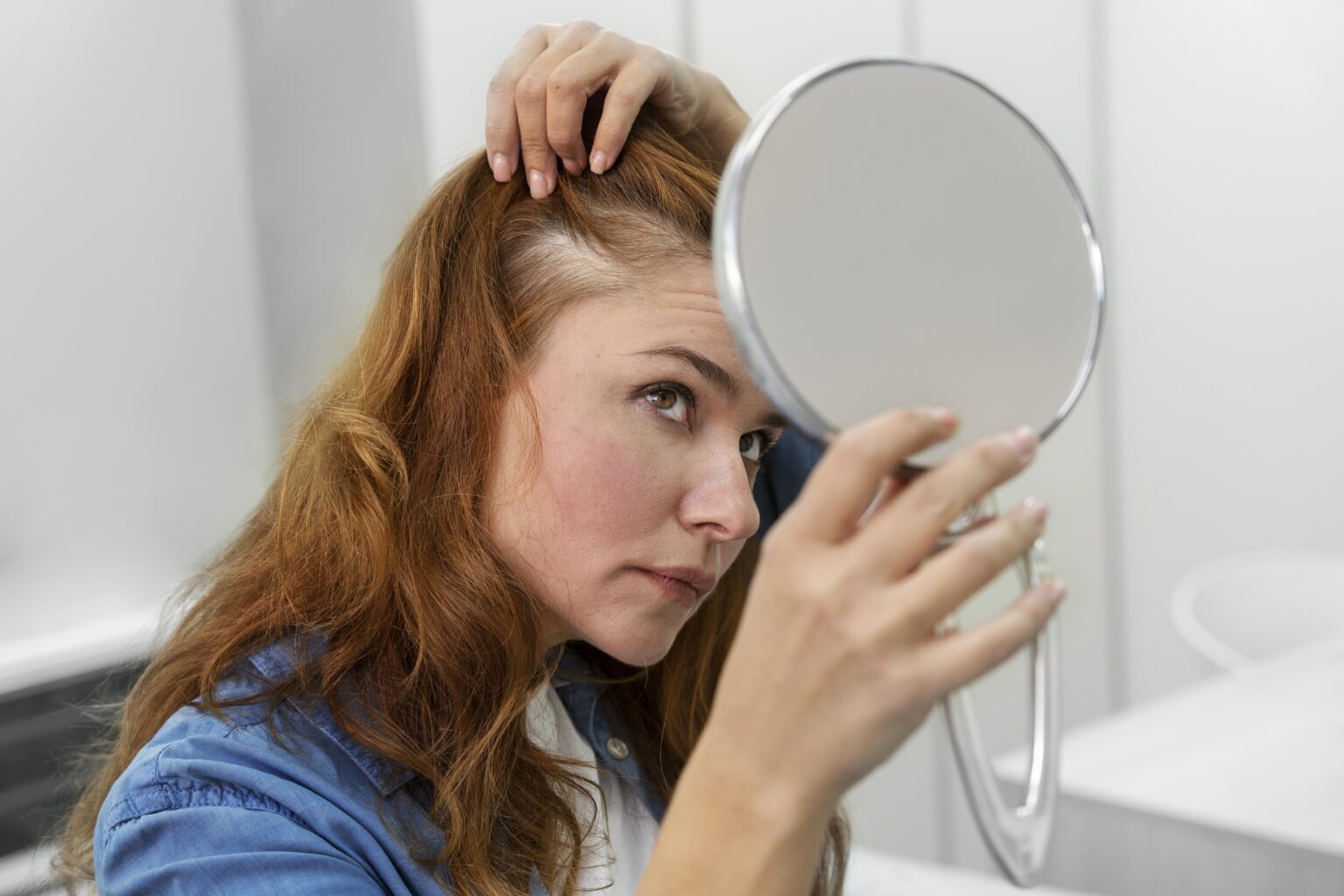Hair loss is a common concern affecting millions of people worldwide, impacting self-esteem and confidence. Understanding the causes of hair loss and the available treatment options can help you address this issue effectively. Here, we explore the primary causes of hair loss and discuss various treatment strategies to help you maintain healthy hair.
Causes of Hair Loss
1. Genetic Factors
Androgenetic Alopecia: Also known as male-pattern baldness or female-pattern baldness, this is the most common cause of hair loss. It is hereditary and involves the gradual thinning of hair on the scalp.
2. Hormonal Changes
- Pregnancy and Childbirth: Hormonal fluctuations during and after pregnancy can cause temporary hair loss.
- Menopause: Decreased estrogen levels during menopause can lead to hair thinning.
- Thyroid Issues: Both hypothyroidism and hyperthyroidism can cause hair loss.
3. Medical Conditions
- Alopecia Areata: An autoimmune disorder where the immune system attacks hair follicles, causing patchy hair loss.
- Scalp Infections: Conditions like ringworm can affect the scalp and lead to hair loss.
- Lupus: This autoimmune disease can cause hair loss as a symptom.
4. Medications
Certain medications can lead to hair loss as a side effect, including those used for:
- Cancer (chemotherapy)
- Arthritis
- Depression
- Heart problems
- High blood pressure
5. Stress and Lifestyle
- Physical or Emotional Stress: Traumatic events or prolonged stress can trigger temporary hair loss, known as telogen effluvium.
- Poor Diet: A lack of essential nutrients, such as vitamins and minerals, can contribute to hair thinning.
6. Hairstyling and Treatments
- Tight Hairstyles: Hairstyles that pull on the hair, like braids or ponytails, can cause traction alopecia.
- Chemical Treatments: Excessive use of chemical treatments like dyes, relaxers, and perms can damage hair and lead to breakage.
Treatment Options for Hair Loss
1. Medications
- Minoxidil (Rogaine): An over-the-counter topical treatment that can slow hair loss and promote hair growth in some people.
- Finasteride (Propecia): A prescription oral medication for men that can help reduce hair loss and promote regrowth by blocking DHT, a hormone linked to hair loss.
2. Hair Transplant Surgery
- Follicular Unit Transplantation (FUT): Involves removing a strip of scalp and transplanting hair follicles to balding areas.
- Follicular Unit Extraction (FUE): Individual hair follicles are extracted and transplanted, leaving minimal scarring.
3. Low-Level Laser Therapy (LLLT)
This non-invasive treatment uses laser light to stimulate hair follicles and promote hair growth. It is considered safe and can be used in conjunction with other treatments.
4. Platelet-Rich Plasma (PRP) Therapy
PRP therapy involves injecting concentrated platelets from your blood into the scalp to stimulate hair growth. This treatment is gaining popularity for its potential to enhance hair restoration.
5. Nutritional Supplements
- Biotin: Often recommended for hair health, though scientific evidence is mixed.
- Iron, Zinc, and Vitamin D: Addressing deficiencies in these nutrients can improve hair health.
6. Lifestyle Changes
- Stress Management: Practices like meditation, yoga, and exercise can help manage stress-related hair loss.
- Healthy Diet: Consuming a balanced diet rich in vitamins and minerals can support healthy hair growth.
7. Hairstyling Alternatives
- Gentle Styling: Avoid hairstyles that pull on the hair and reduce the use of heat styling tools.
- Regular Trims: Keeping hair trimmed can prevent breakage and split ends.
Understanding the underlying causes of hair loss is crucial for determining the most effective treatment plan. Whether it’s making lifestyle changes, exploring medical treatments, or seeking professional advice, there are numerous ways to combat hair loss and promote healthy hair growth. Consulting with a dermatologist or healthcare provider can provide personalized guidance and help you choose the best approach for your specific situation.








